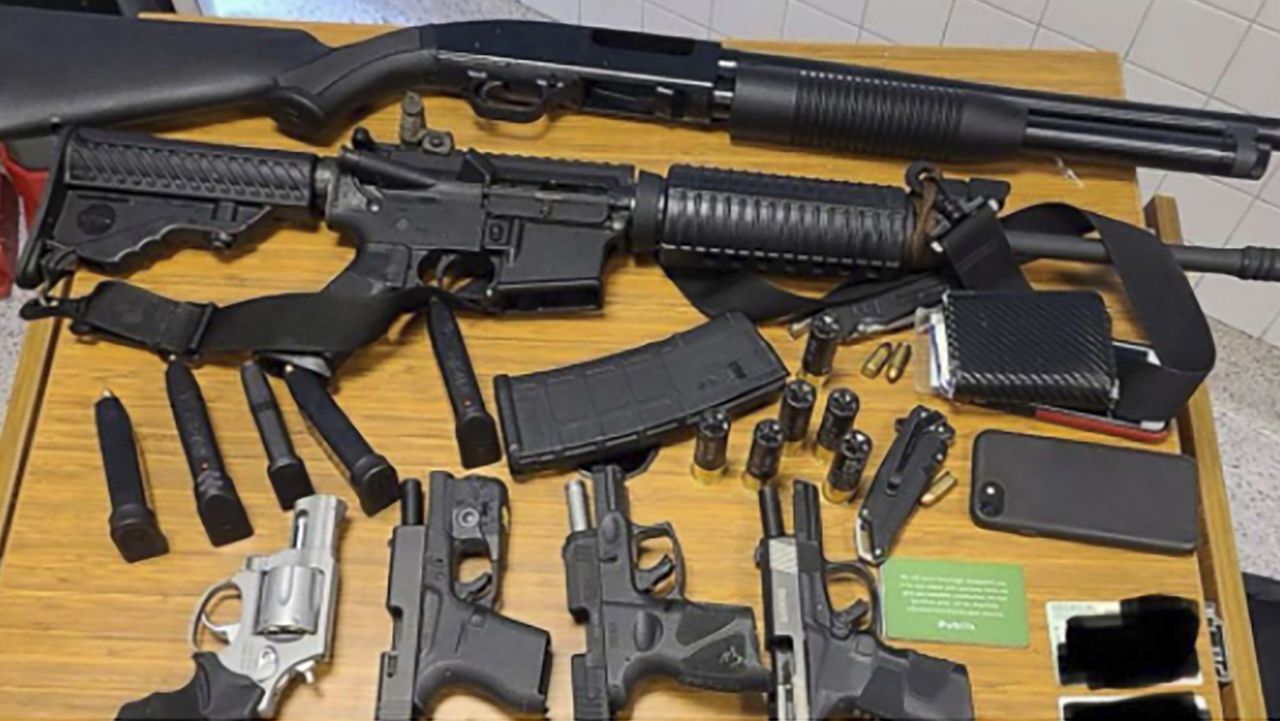Alabama bill make would it a felony for immigrants to have a gun if here illegally
An Alabama House legislator has filed a bill that would make it a state crime for an immigrant in the country illegally to possess a firearm.
HB 64, sponsored by Rep. Ron Bolton, R-Northport, would make it a Class C felony, punishable by up to 10 years in prison, for immigrants living in the country without permission to possess a firearm.
“Mainly to bring a couple of things together under state law that is already being illegal under federal law for many, many years,” Bolton said when describing his bill.
Bolton said the proposed bill would align state law with federal law that bars those in the country unlawfully from possessing firearms.
Federal law makes it nearly impossible for people other than citizens or permanent residents to own and carry a firearm. According to the U.S. Bureau of Alcohol, Tobacco and Firearms, the 1968 Federal Gun Control Act bans those in the country unlawfully from owning a firearm. A violation of the federal law is also a felony, punishable by up to 10 years in prison.
Sarah Ownings, an immigration attorney based in Atlanta, questioned how useful the state proposal would be with the longstanding federal ban in place.
“I guess if they did want to handle things that way, then it would fill up Alabama’s jails more,” she said.
According to the 2020 Census, about 3.5% of Alabama’s population is foreign-born. The national rate is 13.6%.
In 2019, Ignacio Jimenez-Shilon, who lived in the United States for more than 20 years but immigrated illegally, was arrested for brandishing a gun outside a taco stand. The federal law was challenged. A three-judge panel of the U.S. 11th Circuit Court of Appeals upheld the ban in a ruling last May, stating that the law does not violate the Second Amendment of the United States Constitution.
A 2015 study of Census data by the American Immigration Council, a pro-immigration group, found that increased immigration coincided with a drop in violent crime, and that immigrant communities had lower incarceration rates than native-born residents.
Messages seeking comment were left with the National Rifle Association and the Alabama Firearms Association, pro-gun rights organizations.
The ATF can take jurisdiction of people in cases in close coordination with local law enforcement. The Birmingham Police Department has an ATF liaison for cases involving both agencies. The ATF may take custody or the individual may remain in county jail until the U.S Attorney’s Office decides what to do with the case.
“We are finding that (local law enforcement) had to get the Alcohol, Tobacco and Firearms involved because of the federal court system,” Bolton said. “This gives the officers, once they verify through the appropriate investigation, this gives the officers the ability to handle those cases through the state court.”
Ownings said she did not see the federal government having difficulties taking on those cases.
“People who have these kinds of offenses, if that is something you guys are interested in doing, it would take more resources from the state to prosecute people for an offense that is already handled by the federal government,” Ownings said.” So if you think that is a wise use of state resources, then I guess it makes sense to have a proposal like this.”
For Bolton, the proposal simply aligns state law with what the federal government already has on the books.
“This is a crime anyway,” Bolton also said. “All this does is smooth out the process at the state level.”
